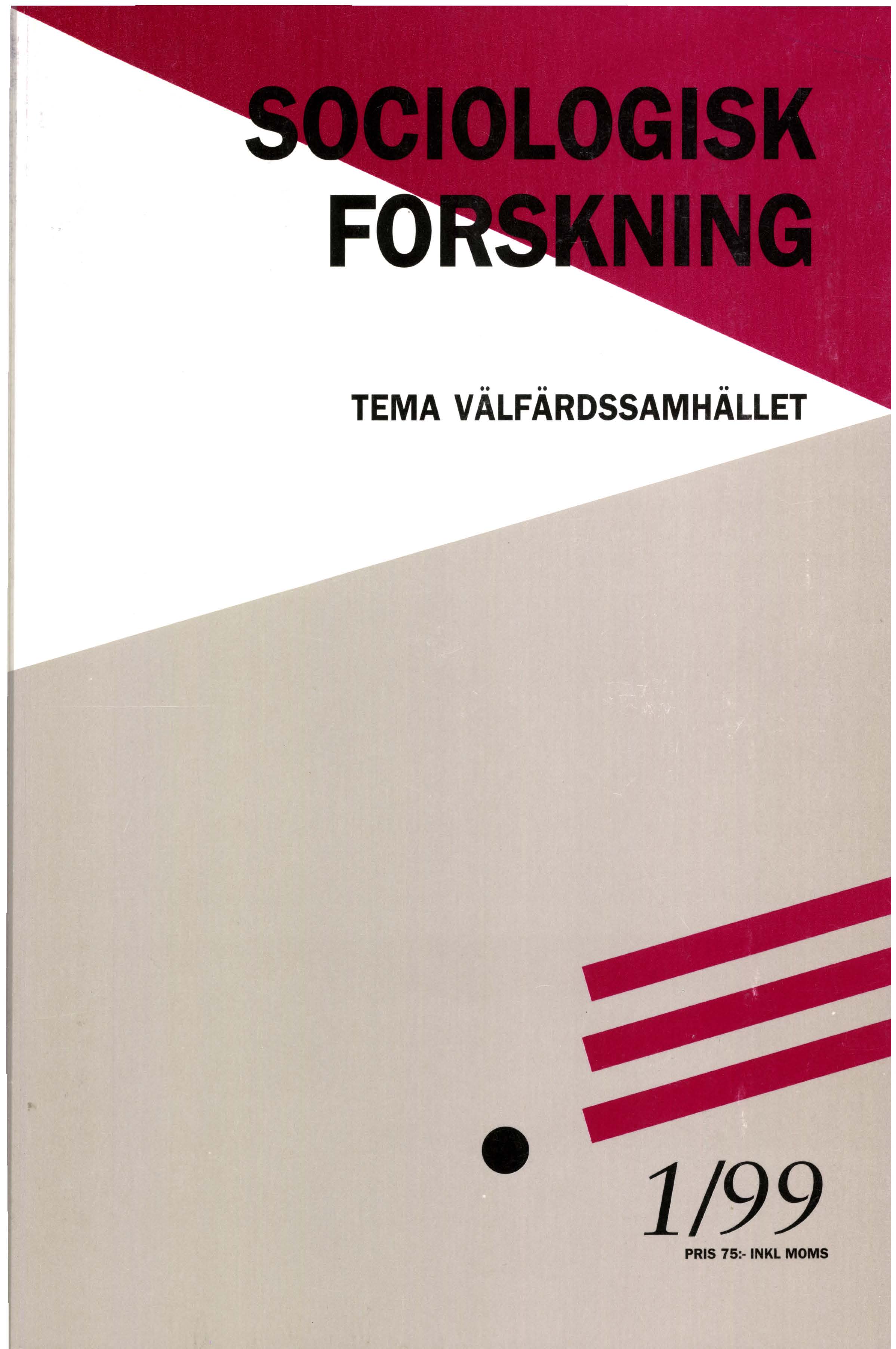Robin Hood, Matteus eller strikt likhet?
En jämförande studie av välfärdsstatens institutioner och strategier för att minska ojämlikhet och fattigdom i västländerna
DOI:
https://doi.org/10.37062/sf.36.18478Abstract
Robin Hood, Matteus or strict equality. A comparative study of welfare state institutions and strategies to decrease inequality and poverty in the rich industrialized countries.
How can we best reduce poverty and inequality? The debate on this question has raised other controversial issues: Should social policies be targeted to low-income groups or universal? Should benefits be equal for all or earnings-related? To answer these questions it is necessary to make three policy-relevant considerations: Firstly, the size of redistributive budgets is not fixed but reflects the structure of welfare state institutions. Secondly, there tends to be a tradeoff between the degree of low income targeting and the size of redistributive budgets. Thirdly, outcomes of market-based distribution are often even more unequal than those of earnings-related social insurance programs. However, traditional arguments in favor of targeting and flat-rate benefits, focusing on the distribution of the money actually transferred, have neglected these considerations. We argue that the design of social insurance institutions is of central importance for redistributive outcomes precisely because it affects the size of redistributive budgets, the tradeoff between targeting and budget size, and the public/private mix of benefit provisions. Our comparative analyses of the effects of different institutional types of welfare states on poverty and inequality are based on new data. The results indicate that institutional differences lead to unexpected outcomes and generate the paradox of redistribution: The more we target benefits at the poor and the more concerned we are with creating equality via equal public transfers to all, the less likely we are to reduce poverty and inequality.
Downloads
Publicerad
Referera så här
Nummer
Sektion
Licens
Allt material i Sociologisk Forskning publiceras med omedelbar öppen tillgång (open access), under Creative Commons-licensen CC BY-NC-ND 4.0.
Allt innehåll i tidskriften är fritt tillgängligt utan kostnad och får för icke-kommersiella syften fritt läsas, laddas ned, kopieras, delas, skrivas ut och länkas. Innehållet får dock inte ändras. När innehållet används måste författare och källa anges. Upphovsrätten till innehållet tillhör respektive författare. Inga publiceringsavgifter tas ut.





